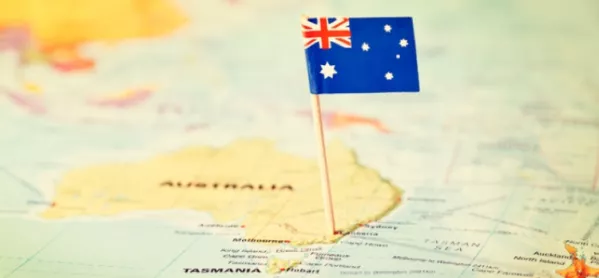- Home
- 4 things UK school systems could learn from Australia
4 things UK school systems could learn from Australia

‘Like taking off a too-tight pair of shoes’ - this was how a friend described moving from London to Melbourne.
Though they were talking about the lifestyle I soon noticed this sense within the education system too when I started teaching here six months ago after working previously as a teacher in London.
Granted, as a casual relief (supply) teacher in Melbourne I had less responsibility, which may have helped. But, overall, among both staff and students, I noticed a collective feeling of calm, and the opportunity to take a breath.
I’m always wary of direct comparisons between countries. We can’t simply uproot what works in one country and place it in our own; different cultures, different socioeconomic issues, different government and a whole host of other factors make it unrealistic.
Yet, in a time where we have an opportunity to re-evaluate and rebuild our education system, there is much to be said for looking at good examples from other countries to see what we can learn.
To that end, here are four differences I’ve noticed in the education system in Australia that I think helps students and teachers alike feel less stressed while developing good academic skills.
1. Fewer exams
The average student in Victoria sits far fewer exams than in the UK.
For instance, students in Victoria do only one set of public exams in Year 12 (Year 13 doesn’t exist) with the average student taking four or five subjects at VCE (similar to our A levels) in Year 12, or a VCAL or VET option (similar to a Btech.)
Only English is compulsory and there are options for an EAL or literacy qualification instead.
This means most of the Australian teachers I spoke to for this article felt they had ample time to cover content over the year - something UK teachers rarely do.
2. More control over the curriculum
While the state still sets the curriculum, teachers in Victoria are a lot freer to design how they teach. There is also a wider range of subjects - 90 compared to the UK’s 50 -that can then be taken at public exam level.
Lots of schools, therefore, design their own modules, similar to how we would in an undergraduate degree, making for a more varied curriculum.
Examples in one school include fake news, skills to pay the bills (numeracy for use in daily life), personal training, street art and computer game design.
This not only allows teachers to make the most of their expertise but allows students to focus more specifically on what interests them and what will help them when they leave school.
3. More independence
In Victoria, all students in secondary school have a laptop - provided by the school with government funding if they cannot buy it themselves.
This allows for more independence: completing more university-style work such as research projects and group work, something that many UK teachers I spoke to said would be beneficial for students.
The use of the software Compass, similar to SIMS, but for students, parents and teachers, gives students further ownership still over their work - they can easily view and upload tasks, see lesson plans, or message their class in a group.
Naturally, this also makes for easier remote learning, and I’ve found this contributes to an atmosphere of stepping back whereby teachers have more trust in the students. This, in turn, leads to students completing more independent work.
4. More faith in teachers
A bane of many teachers’ lives in the UK is the constant pressure from the government: the fear of an Ofsted inspection, myriad unnecessary box-ticking tasks and diminishing funding, to name a few.
Some Australian teachers I talked to for this piece still felt that teaching involved lots of box-ticking and that there was pressure from the state; although interestingly, those who had also worked in the UK commented that the system was much better in Victoria, with one commenting that reminiscing on their time in the UK “brings back bad memories”.
There is no Ofsted equivalent, perhaps contributing to the overall feeling of calm, which in turn means that many schools do not have, for instance, marking policies, and leave it up to the individual teachers and departments to work out what’s best.
The system in Victoria is not perfect. It is far from the case that every single school is better than the UK equivalent.
But I do think that the government could look here for a few starting points on how to improve.
Sophie Lowe is an EAL, French and Spanish teacher and former “More Able Coordinator” from London, currently working in Melbourne.
Keep reading for just £1 per month
You've reached your limit of free articles this month. Subscribe for £1 per month for three months and get:
- Unlimited access to all Tes magazine content
- Exclusive subscriber-only stories
- Award-winning email newsletters